44+ Sample Wedding Contract Templates
-
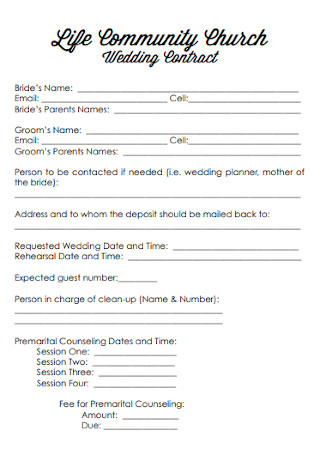
Church Wedding Contract
download now -
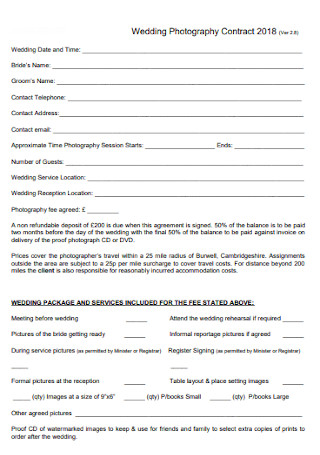
Wedding Photography Contract
download now -
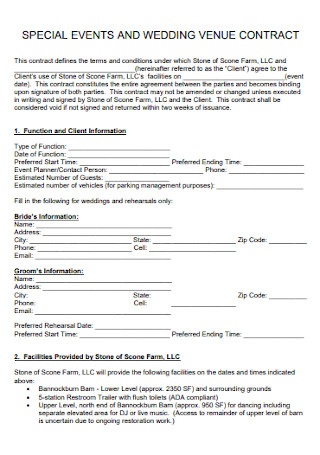
Event Wedding Contract
download now -
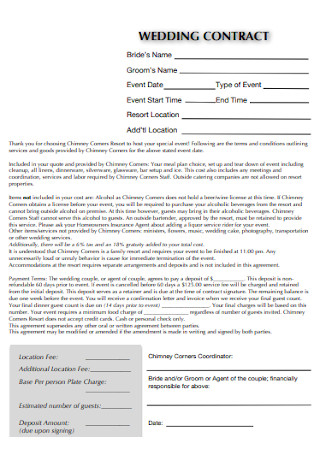
Resort Wedding Contract
download now -
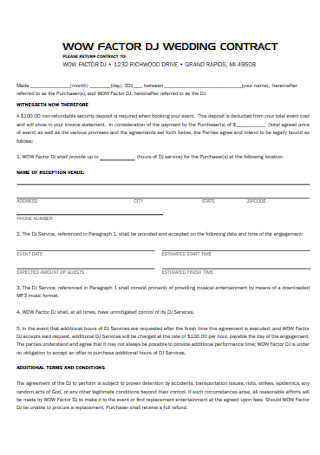
DJ Wedding Contract
download now -
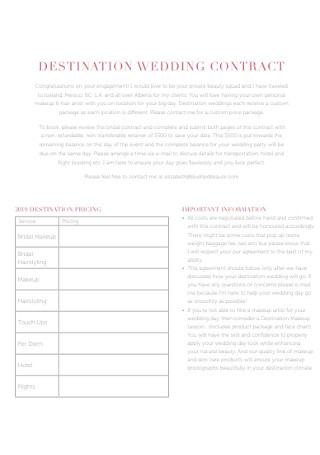
Destination Wedding Contract
download now -
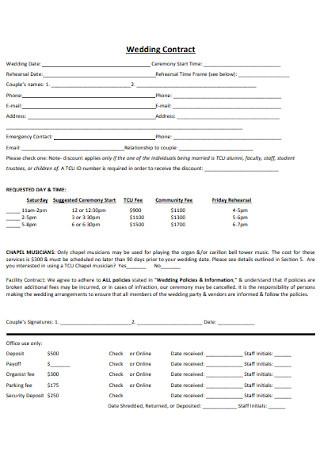
Sample Wedding Contract Template
download now -
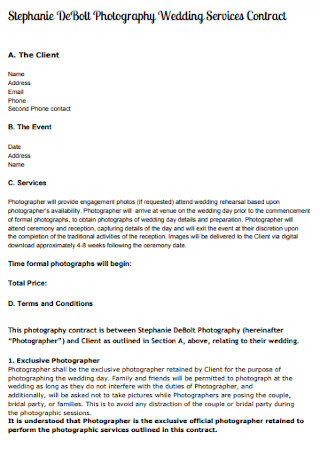
Wedding Services Contract
download now -
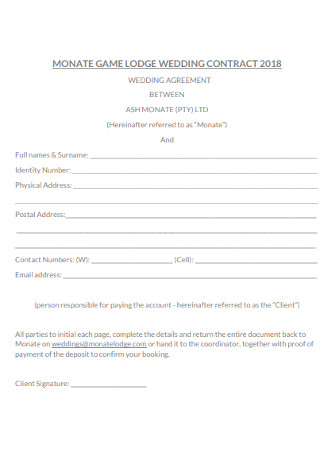
Lodge Wedding Contract
download now -
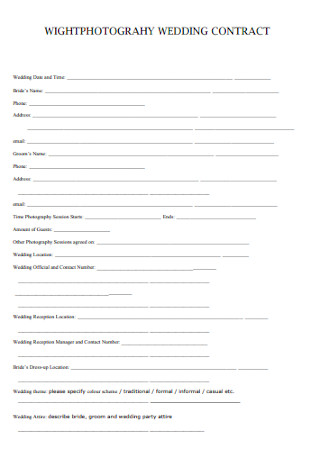
Wedding Wightphotography Contract
download now -
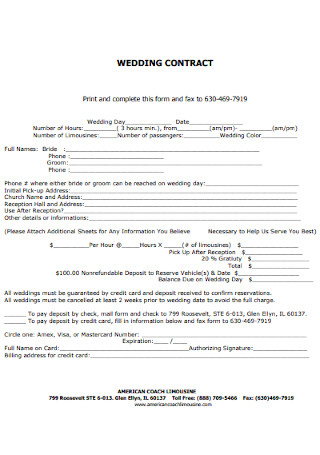
Basic Wedding Contract
download now -
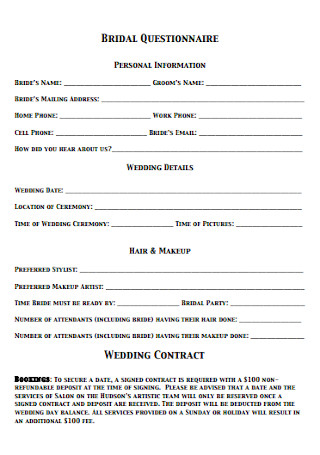
Wedding Contract Questionnaire
download now -
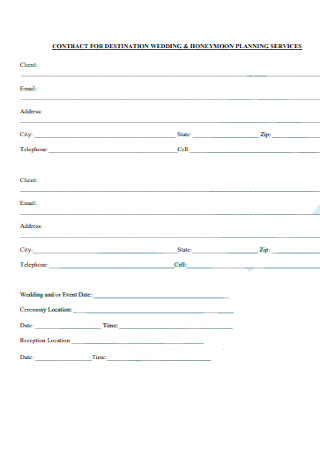
Contract for Destination Wedding
download now -
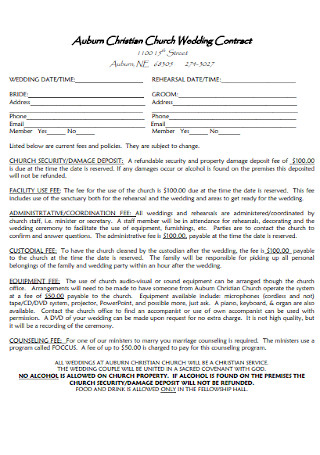
Simple Church Wedding Contract
download now -
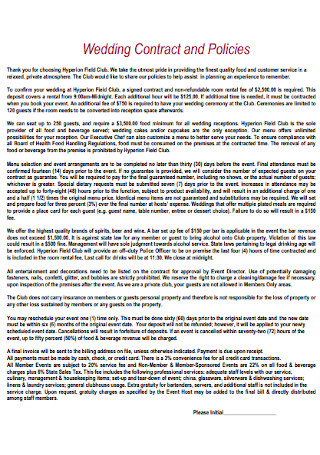
Wedding Contract and Policies Template
download now -
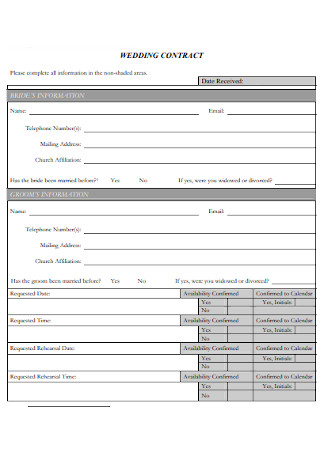
Standard Wedding Contract Template
download now -
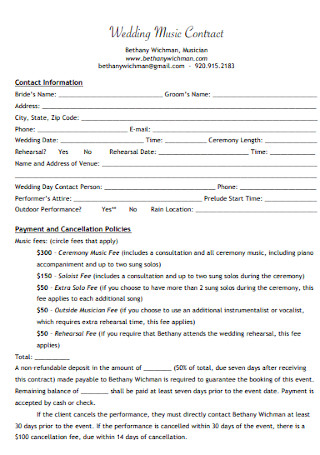
Wedding Music Contract
download now -
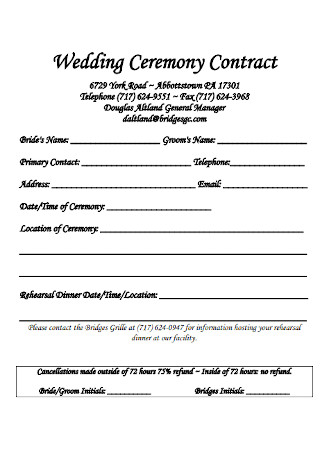
Wedding Ceremony Contract
download now -
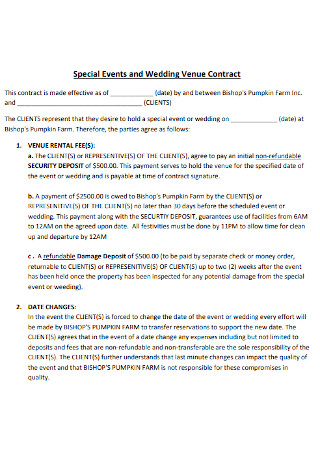
Wedding Venue Contract
download now -
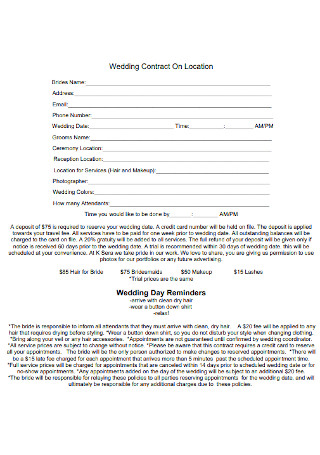
Wedding Contract on Location Template
download now -
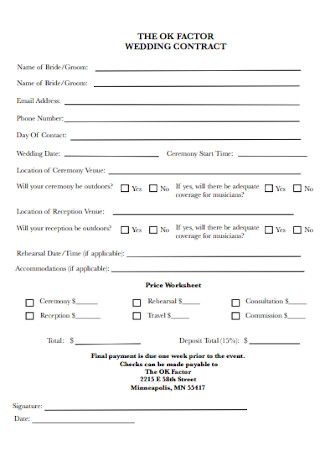
Wedding Factor Contract
download now -
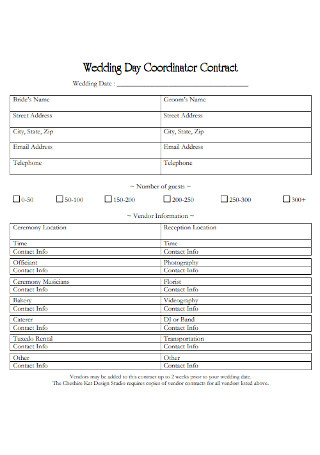
Wedding Day Coordinator Contract
download now -
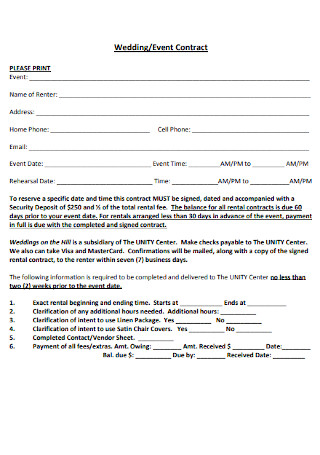
Wedding and Event Contract Template
download now -
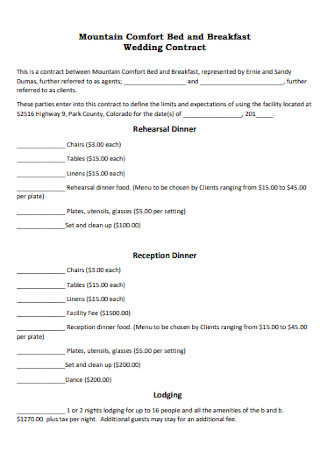
Wedding Breakfast Contract
download now -
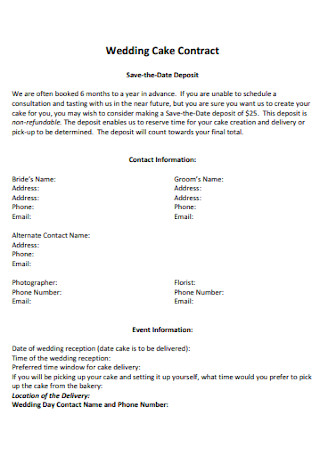
Wedding Cake Contract
download now -
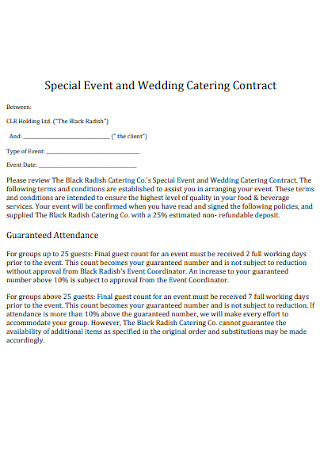
Sample Wedding Catering Contract
download now -
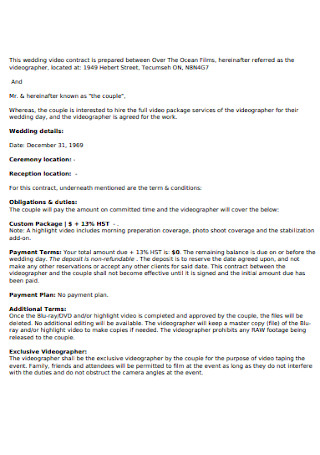
Wedding Video Contract Template
download now -
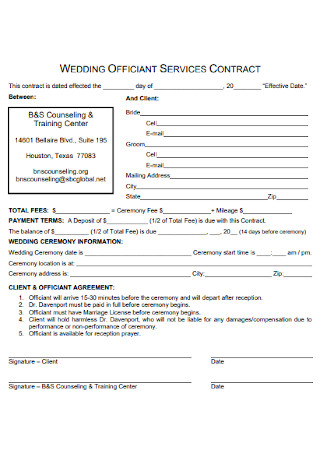
Wedding Officiant Services Contract
download now -
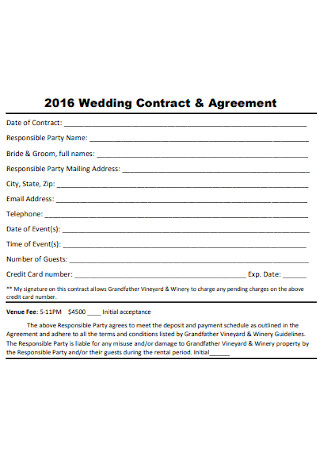
Wedding Contract and Agreement Template
download now -
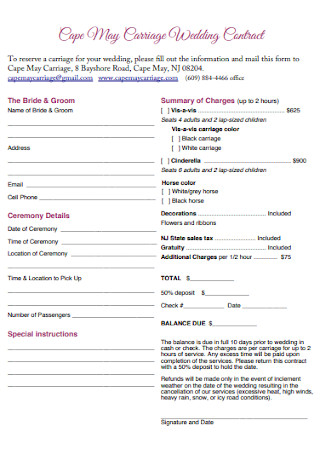
Wedding Carriage Contract Template
download now -
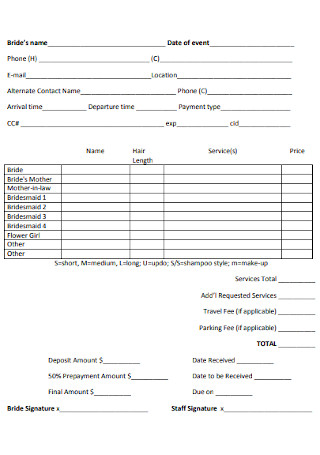
Wedding Information and Contract
download now -
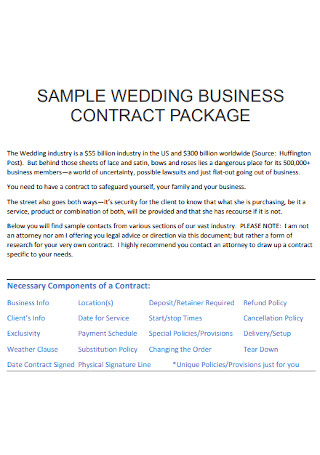
Wedding Business Contract Template
download now -
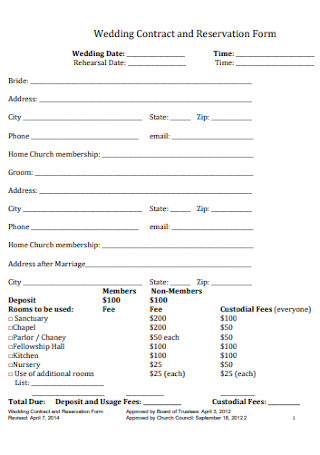
Wedding Contract and Reservation Form
download now -
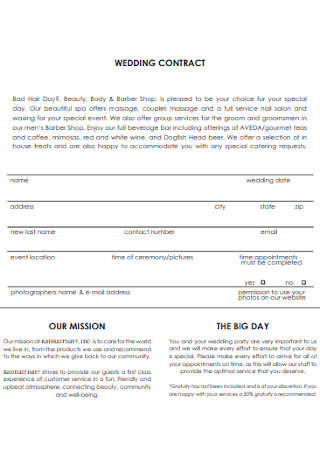
Formal Wedding Contract Template
download now -
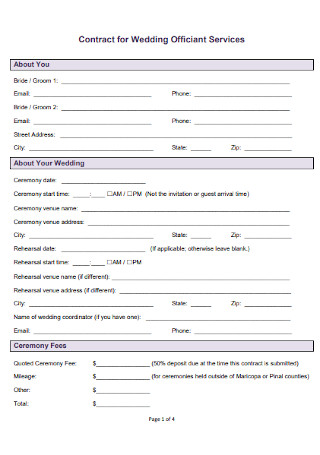
Contract for Wedding Officiant Services
download now -
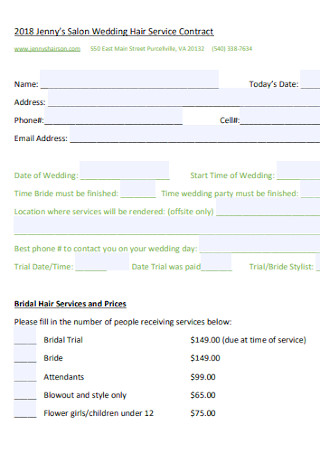
Wedding Hair Service Contract
download now -
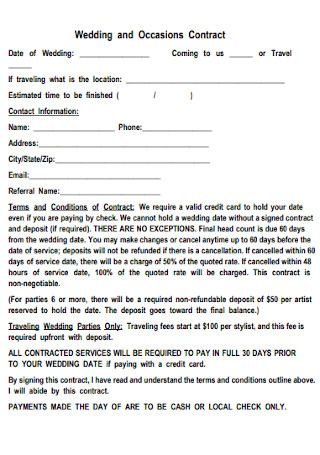
Wedding and Occasions Contract
download now -
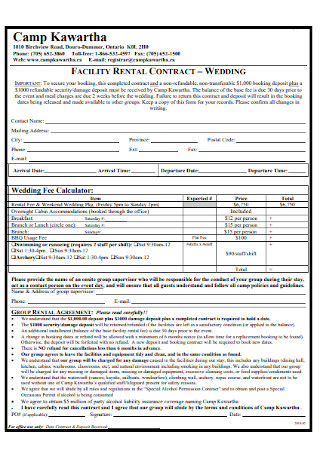
Wedding Rental Facility Contract
download now -
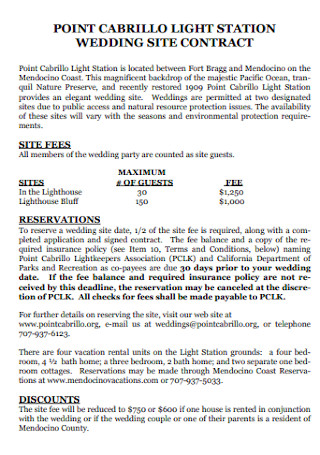
Wedding Site Contract
download now -
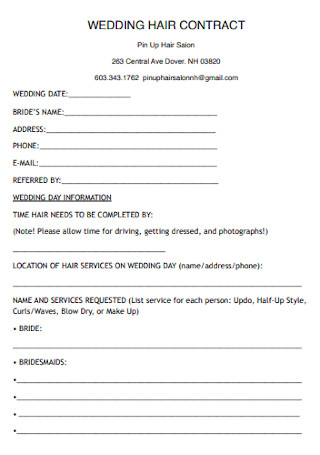
Wedding Hair Contract Template
download now -
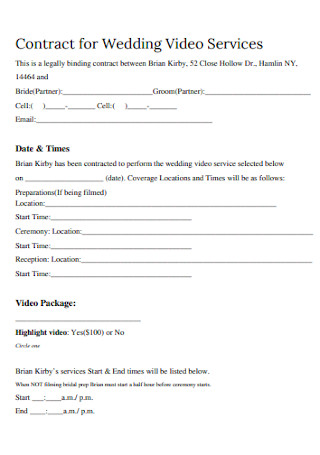
Contract for Wedding Video Services
download now -
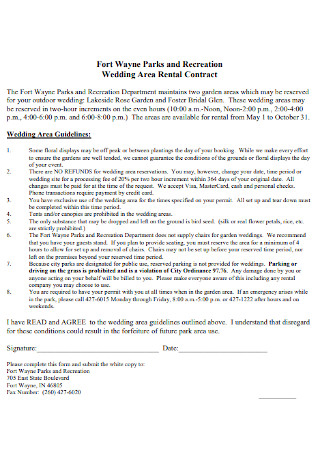
Wedding Area Rental Contract
download now -
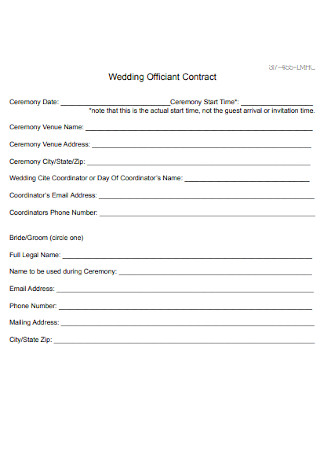
Wedding Officiant Contract Template
download now -
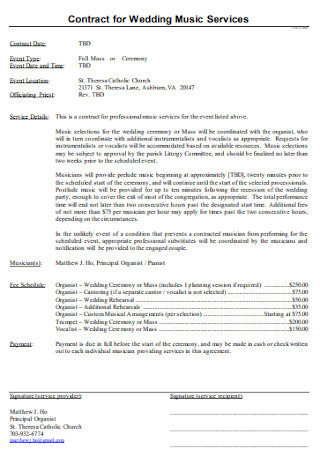
Contract for Wedding Music Services
download now -
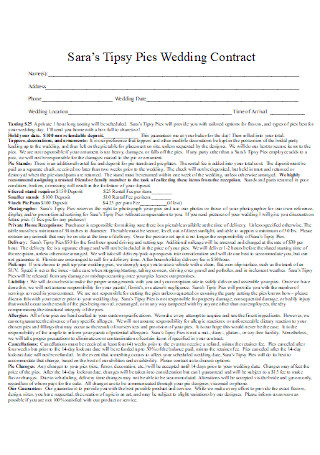
Simple Wedding Contract Template
download now
FREE Wedding Contract s to Download
44+ Sample Wedding Contract Templates
What Is a Wedding Contract?
Understanding Wedding Contract Clauses
How To Plan For a Successful Wedding
FAQs
What is the difference between a hold harmless and an indemnification clause?
Is there such a thing as a bridesmaid contract?
What were marriages like during the Elizabethan era?
Who can officiate a wedding?
What Is a Wedding Contract?
Signing a contract with every vendor you deal with for your wedding is very crucial. A wedding contract ensures that your expectations are clear to the vendor and that he/she meets them. Also, it protects you in case miscommunications arise later on between you and the vendor. The following people are who you might need to transact with in preparation for your wedding day: an event planner, a photographer, a videographer, a hairstylist, a makeup artist, a musician, a caterer, and a florist. Moreover, signing a contract with these people is essential because it will give you a reservation slot for the services they provide. Additionally, a written contract fixes the fee of their services and sets the work scope for every service provider.
According to Tripsavvy, about 2.4 million wedding ceremonies are happening in the United States every year.
Every weekend, about 44,230 weddings happen.
Family members mediate about 43% of those weddings, and religious institutions officiate only 33%.
Understanding Wedding Contract Clauses
Now that you have a team that will make things happen during your wedding, all you need to do is to sign a wedding contract. Before signing one, you must understand every clause a contract has. Not understanding these clauses may overwhelm you and tempt you to sign the agreement without any idea what the document says. With that said, here are some wedding planner contract terms you need to know.
How To Plan For a Successful Wedding
Many things happen before the wedding day. The outcome of your special day depends on the days that occur before that. For that reason, follow the steps below to truly make your wedding a success for you and your partner.
Step 1: Set a Timetable and List Your Priorities
You expect people to ask you about your wedding day the moment you get engaged. In reality, it won’t be easy to give an exact date without planning. So, the first thing you must do is to determine different dates that are feasible for you. Typically, engagements only last for 15 months, but you should think clearly about other events that may conflict with the date you choose.
Then, have a list of priorities regarding what you want or desire to happen on your wedding day. Do you want to get great catering services? Do you want to have a big party with a great band at night? Having a list of priorities will help you throughout the whole process.
Step 2: Know Your Theme and Choose a Venue
Do you wish for a wedding under a big full moon on the beach? Do you fancy a garden wedding? Try to imagine what kind of theme you want to have for your wedding. Address these questions and use them as a guide for your planning: Will you invite all the people you know or just your family members and some close friends? Do you want it to be indoors or outdoors? Where do you want it to happen, in your hometown or away? Do you want your wedding reception to be classic, modern, vintage, romantic, or fabulous? Also, you can get ideas from other couples who had a great wedding. Find inspiration from others.
Step 3: Decide on Your Wedding Budget
Conduct a meeting with your loved ones or family members, and take note of how much each member is willing to contribute to your wedding. The budget outcome will guide every decision or spending you make your wedding. Though this can be a bit awkward, it is better to be ready than sorry.
Step 4: Consider Hiring a Wedding Coordinator
If you and your groom are too busy to plan the whole wedding, you can hire a wedding planner to assist you in the process. A part-time coordinator can help you scheme a blueprint for your marriage, which may include the schedule, the budget, a list of vendors, and venue selections. Also, you can hire a wedding planner just for the wedding day to make sure that everything goes as planned. If it is impossible for you and your partner to take part in planning, then hire a full-time wedding coordinator and sign a wedding coordinator contract with him/her.
Step 5: Lists the Number of Guests You Can Accommodate
You have to consider a lot of factors before listing the number of guests you can accommodate. One of these factors includes the wedding venue. If your location can only fit 200 people, you need to consider who you invite carefully. Would you choose to have quality time with your guests or host a massive party with all your family and friends? Also, if your parents have plans to invite their friends, then you must talk about it. Note that having more guests will also mean having more expenses. Therefore, aside from your location, your budget will also impact your decision regarding your invitations.
Step 6: Choose Your Groomsmen and Bridesmaids
It is better to propose your plan early for your chosen groomsmen and bridesmaid. When they agree to your proposal, they are willing to spend their time and money on your wedding. So, it would be best to inform them in a considerate and polite manner, especially when they have to pay for attires and bachelor or bachelorette parties. Show them that you appreciate them for their efforts in making your wedding a great one.
FAQs
What is the difference between a hold harmless and an indemnification clause?
As mentioned earlier, a hold harmless is a clause in an agreement that expresses that one party will not be responsible for any damages done to the other. On the other hand, an indemnification clause assures that one party will cover up for the other party’s loss.
Is there such a thing as a bridesmaid contract?
Yes. There is one story shown on a TV show about a bridesmaid who got sued for breach of contract. The bride let all of her friends sign a contract during the bridal party. The contract states that they must maintain their appearances or figures up until the wedding. Unfortunately, one bridesmaid gained too much weight and could not wear her dress anymore.
What were marriages like during the Elizabethan era?
Women during the Elizabethan era, unlike our time, had very little chance of choosing who their partners might be. During those days, marriage was often arranged so that the families on both sides might benefit from the union. They were arranged to bring wealth and honor to the household. The sons and daughters of landowners must marry to widen the vastness of their lands. Most couples would often meet for the first time on the day of their wedding in the church.
Who can officiate a wedding?
Clergy members often officiate religious wedding ceremonies. For non-religious weddings, judges or court clerks may officiate a civil marriage. Sometimes, selected people are given temporary authority by a judge to mediate weddings. For Native Americans, their tribal chief usually performs their wedding ceremonies.
A wedding contract is a document that will keep your wedding plan right on track. If problems arise, a written agreement will help you resolve those issues easily. If there are unexpected things that happen, you can rely on a contract to deal with those circumstances. Be excited about your wedding, but also be practical to keep that excitement firing up until your special day.
